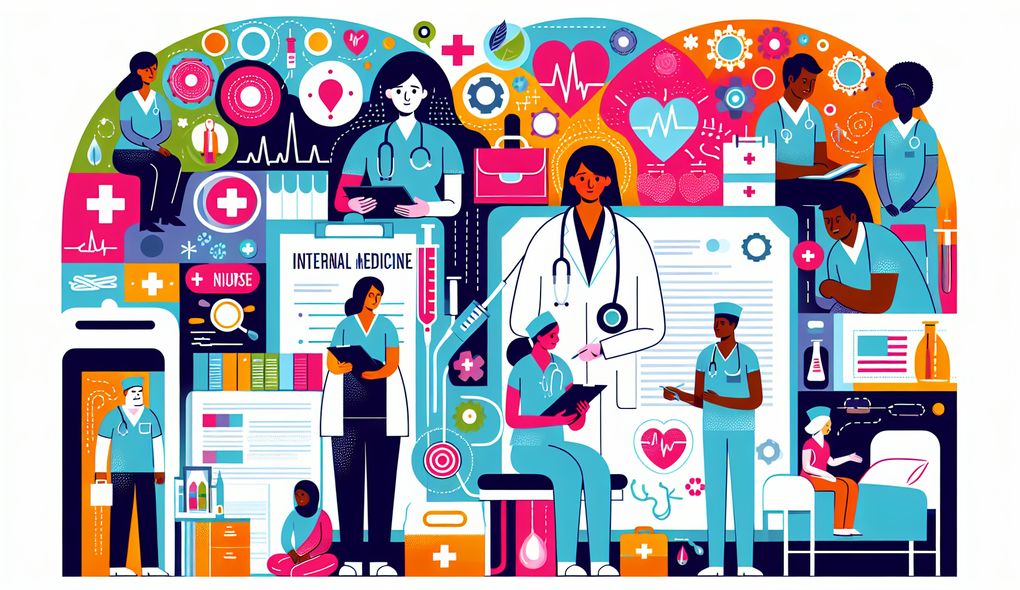Tell us about a time when you had to order, perform, and interpret diagnostic tests.
JUNIOR LEVEL

Sample answer to the question:
In my previous role as a nurse practitioner, I frequently had to order, perform, and interpret diagnostic tests as part of patient care. One specific example that comes to mind is when I had a patient who presented with persistent abdominal pain. After conducting a thorough physical examination and discussing the patient's symptoms and medical history, I determined that ordering a comprehensive set of diagnostic tests was necessary to identify the underlying cause. I ordered an abdominal ultrasound, complete blood count, and liver function tests. I performed the ultrasound and collected the blood samples personally, ensuring accuracy and patient comfort. Once the results were available, I carefully analyzed the findings and compared them to reference ranges to come up with a diagnosis. In this case, the diagnostic tests revealed gallstones, leading me to recommend laparoscopic surgery as a treatment option. This experience not only allowed me to demonstrate my proficiency in ordering, performing, and interpreting diagnostic tests but also highlighted my ability to use critical thinking skills to develop a treatment plan based on the results.
Here is a more solid answer:
In my previous role as a nurse practitioner, I frequently encountered situations that required me to order, perform, and interpret diagnostic tests. One memorable experience was when a patient came to me with persistent abdominal pain. I started by conducting a comprehensive patient assessment, gathering information about their medical history and performing a physical examination. Based on my findings, I determined that diagnostic tests were necessary to identify the underlying cause. I ordered an abdominal ultrasound, complete blood count, and liver function tests. To ensure accuracy and patient comfort, I personally performed the ultrasound and collected blood samples. Once the test results were available, I meticulously analyzed and interpreted them, comparing the findings to reference ranges. In this case, the diagnostic tests revealed the presence of gallstones, which helped me develop a treatment plan that included laparoscopic surgery. This experience showcased my strong clinical skills in accurately identifying the need for diagnostic tests, effectively communicating with the patient, and interpreting the results to guide treatment decisions. Additionally, my proficiency in utilizing healthcare technology, such as electronic health record systems, facilitated the seamless integration of the diagnostic test results into the patient's medical record. Furthermore, this experience emphasized my commitment to continued learning, as I stayed up-to-date with the latest diagnostic guidelines and best practices in internal medicine.
Why is this a more solid answer?
The solid answer expands upon the basic answer by providing more detail and context. It specifically highlights the candidate's clinical skills, communication skills, proficiency in healthcare technology, and commitment to continued learning. However, it can still be improved by including specific examples of effective communication and problem-solving abilities.
An example of a exceptional answer:
In my role as a nurse practitioner specializing in internal medicine, ordering, performing, and interpreting diagnostic tests is a routine aspect of my practice. One particularly notable instance involved a patient presenting with chronic abdominal pain. Through effective communication and active listening, I gathered a comprehensive medical history and conducted a thorough physical examination, which allowed me to develop a differential diagnosis. Recognizing the need for diagnostic tests to evaluate each possibility, I ordered an abdominal ultrasound, complete blood count, liver function tests, and a stool culture. To minimize patient discomfort and maximize accuracy, I carefully performed the ultrasound and skillfully collected the blood and stool samples. Once the results were available, I employed my advanced clinical skills to analyze and interpret the data. By meticulously comparing the findings to established reference ranges, I identified the presence of gallstones coupled with a gastrointestinal infection, making an informed treatment plan possible. I promptly communicated the results to the patient, ensuring they understood the implications and addressing any concerns or questions they had. Additionally, I leveraged my expertise in utilizing electronic health record systems to seamlessly integrate the diagnostic findings into the patient's medical record, facilitating continuity of care. This experience exemplifies my strong critical thinking and problem-solving abilities, as well as my proficiency in healthcare technology. Furthermore, it underscores my commitment to continued learning, as I regularly participate in professional development opportunities and stay updated on the latest advancements in diagnostic testing in internal medicine.
Why is this an exceptional answer?
The exceptional answer provides a comprehensive and detailed response that encompasses all the evaluation areas mentioned in the job description. It demonstrates the candidate's strong clinical skills, effective communication and interpersonal skills, critical thinking and problem-solving abilities, proficiency in healthcare technology, and commitment to continued learning. The answer includes specific examples of effective communication with the patient and the use of healthcare technology to enhance patient care. It also highlights the candidate's commitment to professional development and staying up-to-date with advancements in diagnostic testing. Overall, the exceptional answer showcases the candidate as a highly qualified and competent nurse practitioner.
How to prepare for this question:
- Review the common diagnostic tests relevant to internal medicine and understand their indications and interpretation.
- Familiarize yourself with the latest advancements in healthcare technology and electronic health record systems.
- Reflect on past experiences where you ordered, performed, and interpreted diagnostic tests, and think of examples that demonstrate your clinical skills, effective communication, critical thinking, and problem-solving abilities.
- Stay updated on the latest research and best practices in internal medicine through professional development opportunities, continuing education courses, and relevant publications.
- Practice explaining complex medical concepts in a clear and concise manner to enhance your communication skills.
What are interviewers evaluating with this question?
- Clinical skills
- Communication skills
- Critical thinking
- Healthcare technology
- Continued learning

